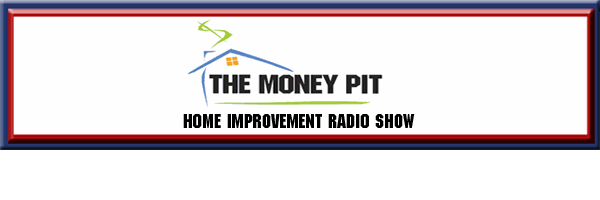By Michael Berry
Host, The Michael Berry Show
KTRH, Houston – iHeartRadio
Independent Syndication
 Growing up in a small town, “word of mouth” was the most powerful form of advertising. It could make – or break – a business. Malcolm Gladwell’s important Tipping Point book explained that movements, pandemics, and other things that “catch on” do so because of the influence of “connectors” – people who are asked for their opinion. Today, the media world likes to call them “influencers.”
Growing up in a small town, “word of mouth” was the most powerful form of advertising. It could make – or break – a business. Malcolm Gladwell’s important Tipping Point book explained that movements, pandemics, and other things that “catch on” do so because of the influence of “connectors” – people who are asked for their opinion. Today, the media world likes to call them “influencers.”
For 17 years, I’ve entertained listeners on the radio and on podcast. Our show has built what many in the industry tell me is an impressive business model. Like Gladwell, I created our own vocabulary and I am strident in enforcing the use of it. Because words matter. I explain to companies that they are our “sponsors,” not “advertisers.” I explain that they put their name behind our show, just as I do for them. In a commercial break stop-set that will be several “commercials” for “advertisers,” but only a couple of my “endorsements.” I don’t speak for a company unless I believe in what they do and how they do it. Likewise, I encourage listeners to send me feedback on their experience with my show’s sponsors. I forward those to the sponsors, either with a request that they address the shortcoming in the service or an attaboy for a job well done.
Listeners tune in to radio, particularly talk radio, to hear the opinions of the host. The host’s opinion matters. If he shares his opinion on movies he likes, foods he enjoys, political candidates he supports, that opinion can affect what the audience does. It is also true that – if his recommendation is trusted by the listener – it can affect the choices the audience makes when they buy something or hire someone to perform a service. But it has to be an “endorsement.”
The radio industry, for many, many years, failed to recognize the value and power of an endorsement. Sellers would sell advertising to clients and get the on-air talent to read the copy points the client (or agency) wrote. Often listlessly, just reading. That is not an endorsement. It is not a host suggesting to his audience where he would personally buy a new door for his home, or take his wife for dinner. If, however, the “read” (a term that reflects that the host is simply reading words someone else wrote) were instead an endorsement, he wouldn’t need all those details. Instead, with just the name of the company, and the owner, and the phone number, as well as what category they are in, he would be able to speak for 30 seconds about why that business is special, why he would (and hopefully has already) use them.
An endorsement is a stamp of approval. It says you believe in someone or something. If an endorsement is really an endorsement, it doesn’t need new copy points to be “freshened up.” It doesn’t include discount offers, seasonal sales, “get in quick before they run out” scares, or other silly tricks Americans long ago learned to ignore. Using that language kills credibility. If I ask you where I should buy my car, and you have a dealer you believe in, you’ll refer me to them, and, if you really like them, call them yourself and ask them to take care of me. “Hook me up” as the kids say. I’m not going anywhere else after an endorsement like that.
Radio (and podcast) has a big future, because of the connection audiences have with hosts. Why abuse that connection? Why cheapen it? Sales reps should understand that and make it part of their pitch. My best sales reps literally dial up companies in industries I identify and start with the question, “Do you listen to The Michael Berry Show?” If the answer is no, I don’t want them as sponsors. I want folks who understand why I’m controversial, why my audience listeners, what my values are.
Radio and podcast’s future is dependent on a sound business model that understands what makes us special, unique, and better than other forms of media.
Here is my list of suggestions to sellers and hosts, in hopes of facilitating better results for show sponsors:
— Sellers should never pitch a client without asking the talent first.
— Talent should not endorse a company without researching and approving them.
— Talent should tell sellers what sorts of things they WANT to endorse. Guns, cigars, home improvement, cars, medical. The best endorsement is something the talent will use himself. An avid gun owner is going to present a very compelling (and effective/profitable) endorsement for a gun range he visits once a week. Look at how weight loss sponsors have profited when the host follows their program and endorses it on air.
— If a sponsor isn’t committed to a yearlong relationship, don’t do it. It ruins credibility to change the endorsement inside the same category. Again, credibility is everything.
— Talent should develop personal relationships with sponsors. They can help listeners this way and the sponsors become show content.
— The value of talent to the station is far more than just ratings. Half my audience is 55+, so the 18-34 or 25-54 rating is less useful to me. But when show sponsors stay on air for 10 or more years, it is a ringing endorsement that what we do works. They vote with their dollars. The whole point of ratings was to show agencies how many people listened, in hopes that that vast listening audience would respond to the commercials they hear, thus monetizing the show, right? Why not go straight to the “dollars in (from the sponsor), dollars out (listeners spending money with sponsors)” model? Show sponsors who get tangible results from their partnership with talent don’t cancel their buy.
— Openly discuss how much money a talent brings into the station. The programming side of radio loves to talk about things that don’t generate dollars, while the sales side is often disconnected from the actual product they are selling. Fix that.
Michael Berry is a longtime, high-ranking member of the TALKERS Heavy Hundred. He’s heard daily on KTRH, Houston and across the country on his own independent network. Michael Berry can be emailed at michael@michaelberryshow.com.
Share this with your network
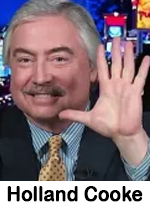 Every time I visit a station, I meet with sales, and I leave ’em a thumb drive of “spots that have produced results elsewhere, for businesses just like yours,” magic words on local direct retail sales calls. Help yourself to these, all of which produced results.
Every time I visit a station, I meet with sales, and I leave ’em a thumb drive of “spots that have produced results elsewhere, for businesses just like yours,” magic words on local direct retail sales calls. Help yourself to these, all of which produced results.


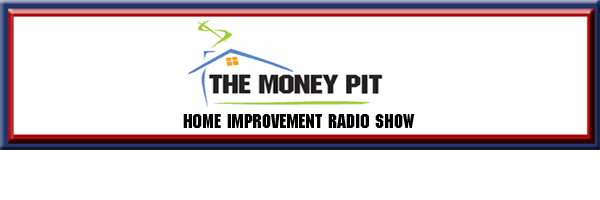
 The whining is non-stop. Many in radio mourn the advent of consolidation, corporate dictates, staff cuts. They miss the way the industry was – before.
The whining is non-stop. Many in radio mourn the advent of consolidation, corporate dictates, staff cuts. They miss the way the industry was – before.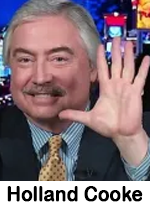 The first thing we heard was an earful from NAB president & CEO Curtis LeGeyt regarding automakers dropping AM receivers from new cars: “This is an issue we consider to be absolutely existential.”
The first thing we heard was an earful from NAB president & CEO Curtis LeGeyt regarding automakers dropping AM receivers from new cars: “This is an issue we consider to be absolutely existential.”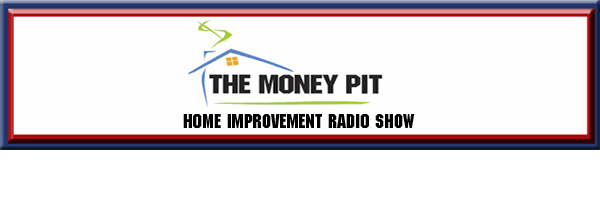
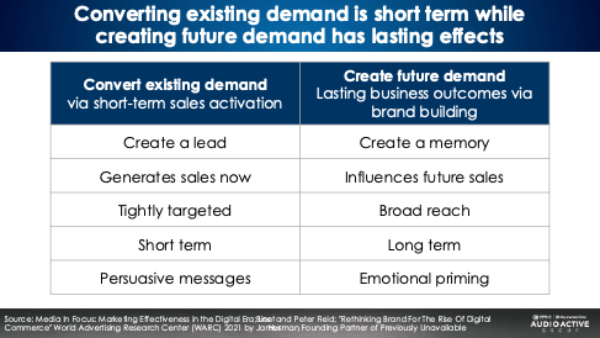
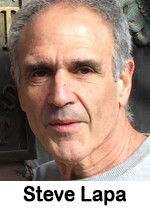 Welcome to the NAB edition of Pending Business.
Welcome to the NAB edition of Pending Business.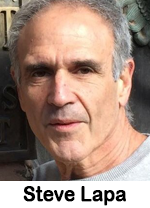 Theory vs. practice is always a fun exercise. What happens when someone is bold enough to step out and break the mold to achieve their goals? Do you stop and learn, or do you simply stay in your comfort zone and take a pass?
Theory vs. practice is always a fun exercise. What happens when someone is bold enough to step out and break the mold to achieve their goals? Do you stop and learn, or do you simply stay in your comfort zone and take a pass?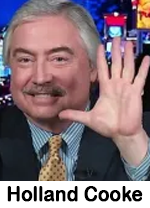 National TV advertising sells things, local radio advertising sells services. And in
National TV advertising sells things, local radio advertising sells services. And in 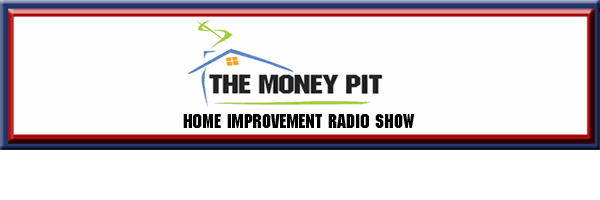
 A shocking number of highly qualified broadcasters have lost their jobs. The venture capitalists that financed the big radio companies are the people who should be fired, but that’s the next column. Let’s get you a job.
A shocking number of highly qualified broadcasters have lost their jobs. The venture capitalists that financed the big radio companies are the people who should be fired, but that’s the next column. Let’s get you a job. On a scale of one to 10, where would you rank yourself on planning and organization?
On a scale of one to 10, where would you rank yourself on planning and organization?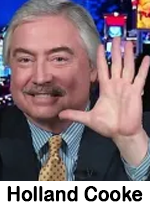 We’ve seen autopsies depicted on various cop shows. As the doctor dispassionately probes the deceased, he or she is dictating into an audio recorder: “I’m opening up the chest cavity…”
We’ve seen autopsies depicted on various cop shows. As the doctor dispassionately probes the deceased, he or she is dictating into an audio recorder: “I’m opening up the chest cavity…”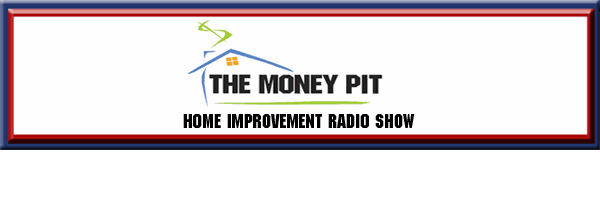
 It was a cruel trick. Hulu started streaming “For the People” from Shondaland Productions last month and I bit. It is a show about Manhattan, ambition and really well-tailored clothes. Then I looked at the more information tab and discovered that the show was cancelled… in 2018. Crushed. Two seasons on ABC. Cancelled.
It was a cruel trick. Hulu started streaming “For the People” from Shondaland Productions last month and I bit. It is a show about Manhattan, ambition and really well-tailored clothes. Then I looked at the more information tab and discovered that the show was cancelled… in 2018. Crushed. Two seasons on ABC. Cancelled. Does anybody really know what time it is? Does anybody really care? YES.
Does anybody really know what time it is? Does anybody really care? YES.
 It is an unpredictable thing, this news cycle that drives the headlines.
It is an unpredictable thing, this news cycle that drives the headlines. Oh, excuse me, hold on. Here it is! The hourly report from quasi research companies or real research companies like Nielsen declaring that radio is just fine, thank you! Massive surveys (choose one) reveal that radio works! Radio appeals to younger demos! Radio moves product! Radio has more listeners in AM drive than the “Tonight Show” has viewers! A landslide of data proves that after 100 years of success, radio is a viable medium.
Oh, excuse me, hold on. Here it is! The hourly report from quasi research companies or real research companies like Nielsen declaring that radio is just fine, thank you! Massive surveys (choose one) reveal that radio works! Radio appeals to younger demos! Radio moves product! Radio has more listeners in AM drive than the “Tonight Show” has viewers! A landslide of data proves that after 100 years of success, radio is a viable medium.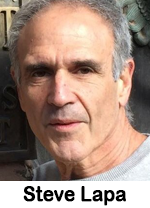 Have you picked up the most recent buzz around Artificial Intelligence? It’s hard to miss it.
Have you picked up the most recent buzz around Artificial Intelligence? It’s hard to miss it.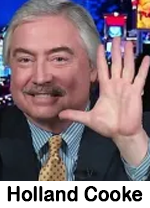 Whenever possible, USA consumers will pay cash, and they’re paying-down credit card balances, per recently released
Whenever possible, USA consumers will pay cash, and they’re paying-down credit card balances, per recently released 
 It’s tough enough for radio talent to navigate stable careers in these days of consolidated station ownership, personnel cutbacks and drastic salary reductions – but the NAB’s newly stated stance on non-competes adds insult to injury and is out of step with the interests of beleaguered professionals still hanging on for dear life in the programming sector of this industry. I understand that the National Association of Broadcasters is at heart a lobbying group representing the interests of the medium’s ownership but, c’mon – non-competes really are of another era and egregiously unfair.
It’s tough enough for radio talent to navigate stable careers in these days of consolidated station ownership, personnel cutbacks and drastic salary reductions – but the NAB’s newly stated stance on non-competes adds insult to injury and is out of step with the interests of beleaguered professionals still hanging on for dear life in the programming sector of this industry. I understand that the National Association of Broadcasters is at heart a lobbying group representing the interests of the medium’s ownership but, c’mon – non-competes really are of another era and egregiously unfair.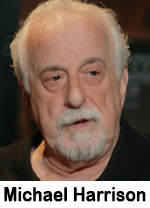 The embarrassing situation and accompanying financial vulnerability being faced by our colleagues at FOX News is a high-profile example of the consequences of audience “targeting” that has become the common positioning strategy in today’s competitive media marketplace. The process is simple: You give the specifically targeted audience what it wants, not necessarily what it needs, even if what it wants is of dubious quality or unhealthy and – in the case of political talk media – untrue. It is a problematic, unsavory practice that has been brewing in our industry for years and, in the case of FOX, the proverbial toxicity has just hit the fan.
The embarrassing situation and accompanying financial vulnerability being faced by our colleagues at FOX News is a high-profile example of the consequences of audience “targeting” that has become the common positioning strategy in today’s competitive media marketplace. The process is simple: You give the specifically targeted audience what it wants, not necessarily what it needs, even if what it wants is of dubious quality or unhealthy and – in the case of political talk media – untrue. It is a problematic, unsavory practice that has been brewing in our industry for years and, in the case of FOX, the proverbial toxicity has just hit the fan. Growing up in a small town, “word of mouth” was the most powerful form of advertising. It could make – or break – a business. Malcolm Gladwell’s important Tipping Point book explained that movements, pandemics, and other things that “catch on” do so because of the influence of “connectors” – people who are asked for their opinion. Today, the media world likes to call them “influencers.”
Growing up in a small town, “word of mouth” was the most powerful form of advertising. It could make – or break – a business. Malcolm Gladwell’s important Tipping Point book explained that movements, pandemics, and other things that “catch on” do so because of the influence of “connectors” – people who are asked for their opinion. Today, the media world likes to call them “influencers.” Local news sponsorship is an opportunity to “fish for whales,” institutional advertisers who can associate with something special. And, well-done, local news sure is special, because:
Local news sponsorship is an opportunity to “fish for whales,” institutional advertisers who can associate with something special. And, well-done, local news sure is special, because:
 How might we better serve you in the future? How would you rate our service?
How might we better serve you in the future? How would you rate our service? Radio is good at contests. TV and print suck at contests. However, when listeners are asked why they tune to radio, contests are at the bottom of the list.
Radio is good at contests. TV and print suck at contests. However, when listeners are asked why they tune to radio, contests are at the bottom of the list.